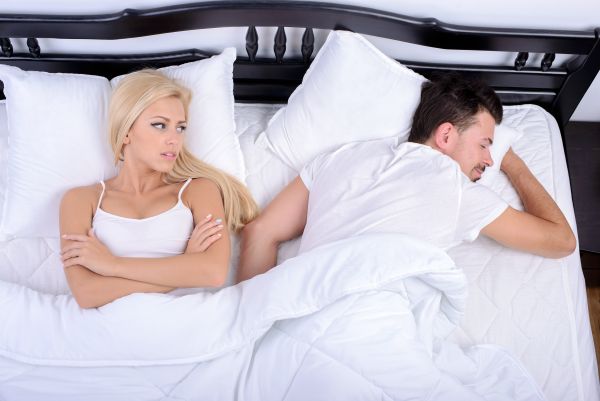The Link Between Sleep Apnea and Oral Health

Sleep disorders such as insomnia and snoring are associated with a sleep problem called sleep apnea. Sleep apnea can cause oral health issues and vice versa. In this article, we explored the correlation between sleep apnea and your oral health.
What is sleep apnea?
According to the American Academy of Sleep Medicine, sleep apnea is a common sleep issue affecting roughly 25 million Americans. Recurrent breathing interruptions indicate sleep apnea during sleep. Obstructive sleep apnea, which is the most common type, occurs when the soft tissues of the airway collapse, usually due to a large tongue, obesity, and other risk factors. Apnea cuts off the oxygen supply to the lungs.
Due to the disruptive effects of sleep apnea on the sleep cycle, it causes daytime weakness, fatigue, and poor mental performance and has lasting adverse effects on health. Untreated sleep apnea can be life-threatening because it leads to an oxygen drop, high blood pressure, and heart-related issues.
The connection to oral health
Good, quality sleep is vital for general wellbeing, combating bad breath, mouth ulcers, and periodontal disease. Oral issues connected with sleep apnea include TMJ disorder, bruxism and mouth breathing.
TMJ
Temporomandibular joint (TMJ) disorders and sleep apnea are related. The TMJ links the upper jaw to the lower jaw. Everyone has two TMJs, one on either side of the face. TMJ disorder could cause jaw pain, locked jaw, pain in the head, neck, and shoulders, and issues with chewing.
A 2013 study reported in the Journal of Dental Research discovered that people who are at a higher risk of sleep apnea were also three times more susceptible to suffering from TMJ disorder. The study also found that patients who showed signs of sleep apnea had about a 73 percent higher risk of having TMJ issues, irrespective of their race, age, weight or smoking habits.
Bruxism
Bruxism is the term for teeth grinding or jaw clenching. Although this habit can occur at any time, people usually engage in the practice subconsciously while sleeping. Bruxism has adverse effects on sleep and may cause you to wake up feeling tired, with headaches and jaw pain. Research published by the Journal of Oral and Facial Pain and Headache stated that bruxism affects up to 31 percent of adults and approximately a quarter of them may suffer from sleep apnea.
Bruxism is categorized under sleep-related problems because it results in involuntary and uncontrolled jaw movement while sleeping. Patients may not be aware of the disorder, but the dentist will detect the signs during a dental checkup.
Mouth breathing
Sleep apnea may force the person to breathe through their mouth. This causes dry mouth, which contributes to tooth decay, plaque, mouth sores, and gum disease. Based on research published in the Journal of the Indian Society of Periodontology, periodontal disease affects 62.3 percent of sleep apnea patients.
Learn more today
Sleep disorders such as sleep apnea can affect general wellbeing negatively. If you are worried that you have sleep apnea, book a consultation with the general dentist to ascertain the cause of your sleeping issues. The dental expert will discuss various treatment options available to help you sleep better.
Request an appointment here: https://brimhalldentalgroup.com or call Brimhall Dental Group at (661) 249-1122 for an appointment in our Bakersfield office.
Check out what others are saying about our services on Yelp: Read our Yelp reviews.
Recent Posts
Dentures are viable tooth replacement options that restore the look and function of your smile. Whether you are missing one tooth or all of them, these restoratives can serve as long-lasting alternatives. With a variety of dentures options, patients can determine which option will best meet their needs through a consultation appointment. Here is some…
Implant dentists restore the appearance, function, and oral health of patients' smiles by replacing missing teeth. What makes implant dentistry unique is the use of dental implants, which are essentially artificial tooth roots that hold replacement teeth securely in the proper permanent position.Many have heard of implant dentistry but are not entirely familiar with what…
Dentures can help restore your smile and bring back your dental functions. Smiling, speaking, and eating improve with these restorations. Your dentist can help you gain the most out of them. Here are the details on how dentures can restore your oral function. Research reveals that many dental problems can surface. Dentures can replace missing…
Losing multiple teeth can affect not only oral health but also self-confidence, preventing you from fully participating in social situations and living a fulfilling life. Dentures are an effective solution to replace missing teeth, offering functional and psychological benefits. They can restore your smile and ability to speak confidently and chew food efficiently while improving…


